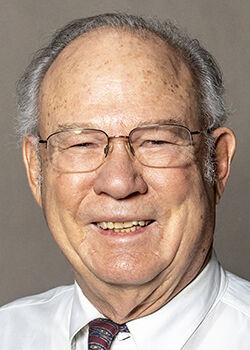
Washington court grants Eggleston preliminary injunction following appeal
Listen
(Runtime 1:19)
Read
The Washington Court of Appeals on Tuesday granted an emergency injunction to Dr. Richard Eggleston, a Clarkston ophthalmologist, who came under fire for opinion columns questioning, among other things, COVID-19 and pandemic death counts.
The ruling means a delay to a disciplinary hearing with the Washington Medical Commission scheduled for May 24-26.
According to the ruling, though granting a stay would inconvenience state witnesses and members of the commission, the commission has not demonstrated that a stay would cause actual harm to the public.
Eggleston sought the stay to seek First Amendment protections for his speech.
The state’s lawyer, Kristin Brewer, argued in the May 17 hearing that Eggleston’s First Amendment Rights were not being violated because the disciplinary hearing necessary to impose sanctions had not been held.
Eggleston’s Lawyer, Todd Richardson, said although he understands the argument, he believes legal precedent supports providing additional protections for First Amendment rights.
“If I were in [Brewer’s] shoes, that’s probably what I would have argued. I will tell you that I disagreed with that position,” Richardson said. “Sometimes, especially with constitutional rights, the process is the punishment, or at least the beginning of the punishment.”
In her decision, Court Commissioner Hailey L. Landrus cited another case, Dombrowski v. Pfister, which ruled the potential chilling effect of prosecution, threatened First Amendment protections.
“Balancing the parties’ competing interests and hardships favors Dr. Eggleston,” Landrus wrote. “Pursuit of review of the trial court’s decision denying injunctive relief weighs heavier than potentially unnecessary time and expense spent by the parties, lawyers, witnesses, and commission members on a three-day administrative hearing that may be constitutionally precluded.”
Richardson said he was glad to get the ruling.
“I was cheering when I got it,” Richardson said. “It is a preliminary ruling, and I don’t know what the commission is going to do about it. There may be a great deal of work yet to come.”
The state has 10 days to file a motion to modify the commissioner’s emergency stay. If the state does, a panel of three judges may decide whether to reverse the emergency stay.
Separate from that, the appeal of the May 17 denial for a preliminary injunction is ongoing, Richardson said.
“It could be superseded,” Richardson said. “So, if the commission decides not to continue to fight this, that injunction would remain in place.”
If the appeal process for the preliminary injunction moves forward, it could take six to 12 months to see a ruling.
If the court reverses the denial of Eggleston’s motion for a preliminary injunction, Asotin County Superior Court Judge Brooke Burns would schedule a hearing to determine if a permanent injunction should be entered.
Richardson said the emergency stay could lead to the end of the case, but it isn’t guaranteed.
“There’s all of these different off-ramps that can come between now and then,” Richardson said.















